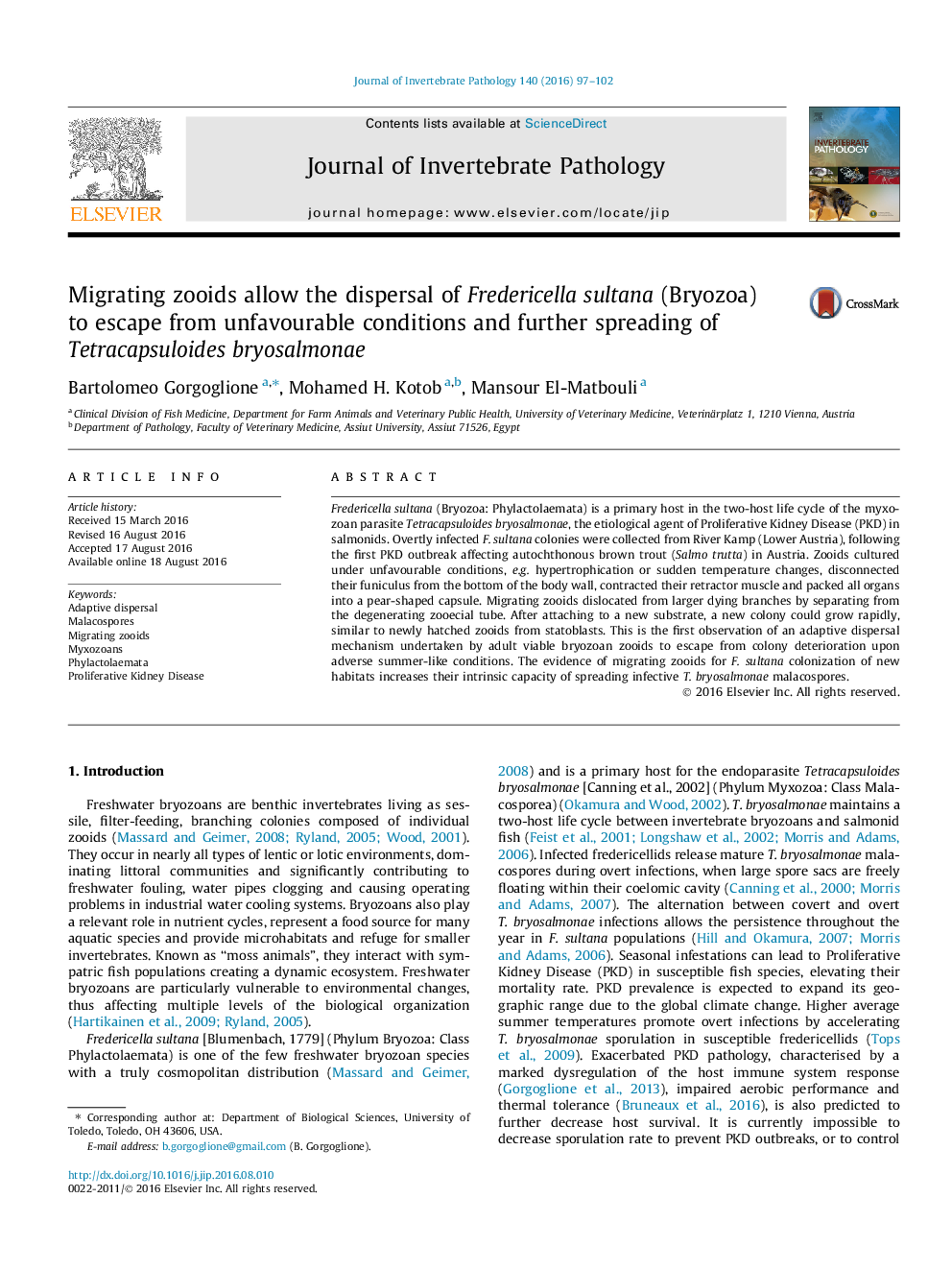| کد مقاله | کد نشریه | سال انتشار | مقاله انگلیسی | نسخه تمام متن |
|---|---|---|---|---|
| 4557484 | 1628212 | 2016 | 6 صفحه PDF | دانلود رایگان |

• A novel adaptive dispersal mechanism is described for Phylactolaemata bryozoans.
• Fredericella sultana migrating zooids dislocate from larger degenerating branches.
• F. sultana is a primary host for Tetracapsuloides bryosalmonae causing PKD in salmonids.
• F. sultana migrating zooids potentially enhance the spreading of infective malacospores.
Fredericella sultana (Bryozoa: Phylactolaemata) is a primary host in the two-host life cycle of the myxozoan parasite Tetracapsuloides bryosalmonae, the etiological agent of Proliferative Kidney Disease (PKD) in salmonids. Overtly infected F. sultana colonies were collected from River Kamp (Lower Austria), following the first PKD outbreak affecting autochthonous brown trout (Salmo trutta) in Austria. Zooids cultured under unfavourable conditions, e.g. hypertrophication or sudden temperature changes, disconnected their funiculus from the bottom of the body wall, contracted their retractor muscle and packed all organs into a pear-shaped capsule. Migrating zooids dislocated from larger dying branches by separating from the degenerating zooecial tube. After attaching to a new substrate, a new colony could grow rapidly, similar to newly hatched zooids from statoblasts. This is the first observation of an adaptive dispersal mechanism undertaken by adult viable bryozoan zooids to escape from colony deterioration upon adverse summer-like conditions. The evidence of migrating zooids for F. sultana colonization of new habitats increases their intrinsic capacity of spreading infective T. bryosalmonae malacospores.
Figure optionsDownload as PowerPoint slide
Journal: Journal of Invertebrate Pathology - Volume 140, October 2016, Pages 97–102